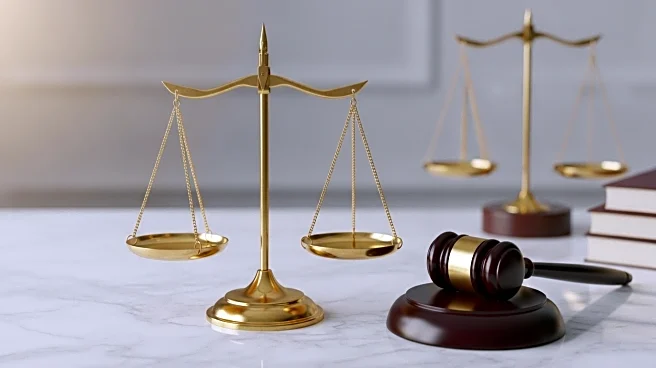What's Happening?
Supreme Court Justice Neil Gorsuch has expressed disapproval of lower court judges who he believes are not adhering to Supreme Court decisions, particularly in cases involving the Trump administration. This criticism arose from a recent court decision on August 21, which allowed the administration to temporarily cancel health research grants that promote diversity, equity, and inclusion (DEI). Gorsuch, joined by Justice Brett Kavanaugh, argued that a federal judge who blocked the DEI grant cancellations should have known that such challenges belong in a different court that handles government contract disputes. The case in question involved teacher training grants, which Gorsuch deemed 'materially identical' to the research grants awarded by the National Institutes of Health. However, Chief Justice John Roberts and the court's three liberal justices disagreed, stating that the cases were different and the district judge's order was valid.
Why It's Important?
The disagreement among Supreme Court justices highlights ongoing tensions regarding the interpretation and application of court decisions, especially those involving the Trump administration. The case underscores the complexities of judicial decision-making and the challenges lower courts face in interpreting Supreme Court rulings. The outcome of this case could have significant implications for how government contracts and grants are managed, particularly those related to DEI initiatives. The broader impact may affect the funding and continuation of research projects that rely on such grants, potentially influencing the landscape of academic and scientific research in the U.S.
What's Next?
The case may lead to further legal scrutiny and potential appeals, as stakeholders seek clarity on the jurisdiction and authority of different courts in handling government contract disputes. The Supreme Court's decision could prompt legislative or administrative actions to address the ambiguities in grant management and judicial oversight. Additionally, the case may influence future judicial appointments and the ideological balance of the courts, as political leaders and advocacy groups respond to the perceived biases in judicial decision-making.
Beyond the Headlines
The case raises ethical and legal questions about the role of the judiciary in balancing government interests with individual rights and the principles of diversity, equity, and inclusion. It also highlights the potential for judicial decisions to shape public policy and societal values, particularly in areas related to education and research funding. The ongoing debate may lead to a reevaluation of the criteria and processes for awarding government grants, with implications for transparency and accountability in public funding.









